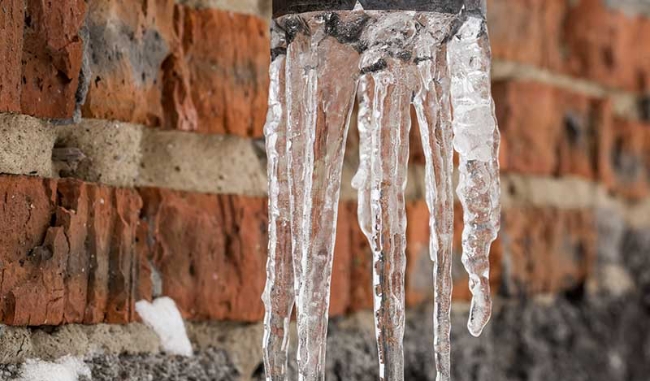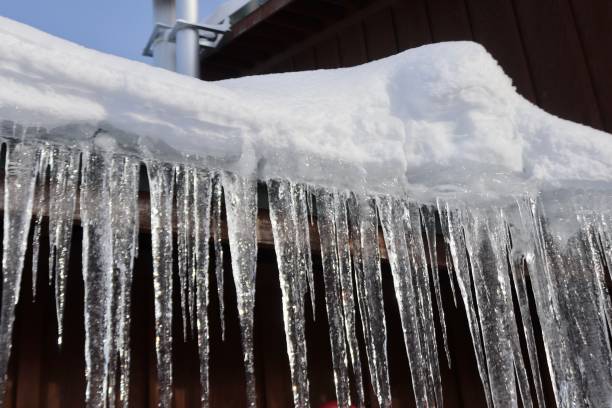Essential Methods for Avoiding Frozen Pipes in Winter
Essential Methods for Avoiding Frozen Pipes in Winter
Blog Article
The article which follows in relation to Helpful Tips to Prevent Frozen Pipes this Winter is absolutely motivating. Read it for your own benefit and decide what you think of it.

Winter can damage your pipes, particularly by freezing pipes. Here's just how to stop it from taking place and what to do if it does.
Intro
As temperature levels decrease, the danger of frozen pipes rises, potentially resulting in pricey repair services and water damage. Recognizing exactly how to prevent icy pipes is critical for house owners in cool climates.
Avoidance Tips
Insulating at risk pipes
Wrap pipelines in insulation sleeves or use warmth tape to shield them from freezing temperatures. Concentrate on pipelines in unheated or external areas of the home.
Home heating methods
Maintain indoor spaces properly warmed, especially locations with pipes. Open up cabinet doors to allow warm air to flow around pipes under sinks.
Exactly how to identify icy pipes
Try to find decreased water circulation from faucets, uncommon odors or sounds from pipelines, and visible frost on revealed pipes.
Long-Term Solutions
Architectural adjustments
Think about rerouting pipelines away from exterior wall surfaces or unheated locations. Add extra insulation to attics, cellars, and crawl spaces.
Updating insulation
Invest in top notch insulation for pipelines, attics, and walls. Appropriate insulation assists keep regular temperature levels and reduces the risk of frozen pipes.
Safeguarding Outside Plumbing
Garden hose pipes and outside faucets
Disconnect and drain garden hoses prior to winter months. Mount frost-proof faucets or cover outside faucets with insulated caps.
Understanding Icy Pipelines
What triggers pipes to ice up?
Pipelines freeze when exposed to temperature levels listed below 32 ° F (0 ° C) for extended durations. As water inside the pipelines freezes, it expands, taxing the pipe walls and possibly causing them to break.
Risks and problems
Icy pipelines can cause supply of water interruptions, residential property damages, and expensive fixings. Ruptured pipes can flooding homes and cause extensive structural damage.
Indications of Frozen Water Lines
Recognizing icy pipelines early can avoid them from rupturing.
What to Do If Your Pipes Freeze
Immediate actions to take
If you think frozen pipelines, maintain faucets open to ease pressure as the ice thaws. Make use of a hairdryer or towels soaked in hot water to thaw pipelines gradually.
Conclusion
Preventing icy pipes requires aggressive procedures and quick feedbacks. By comprehending the causes, indicators, and preventive measures, home owners can safeguard their pipes during winter.
6 Proven Ways to Prevent Frozen Pipes and Protect Your Home
Disconnect and Drain Garden Hoses
Before winter arrives, start by disconnecting your garden hoses and draining any remaining water. Close the shut-off valves that supply outdoor hose bibs and leave the outdoor faucet open to allow any residual water to drain. For extra protection, consider using faucet covers throughout the colder months. It’s also important to drain water from any sprinkler supply lines following the manufacturer’s directions.
Insulate Exposed Pipes
Insulating your pipes is an effective way to prevent freezing. Pipe insulation is readily available at home improvement stores and is relatively inexpensive. Pay close attention to pipes in unheated areas such as the attic, basement, crawl spaces, or garage. Apply foam insulation generously to create a buffer against the cold. You can also wrap your pipes in heat tape or thermostat-controlled heat cables for added warmth.
Seal Air Leaks
Inspect your home for any cracks or openings that could let in cold air. Seal any holes around the piping in interior or exterior walls, as well as the sill plates where your home rests on its foundation. Additionally, make sure to keep your garage door closed unless you’re entering or exiting. Leaving it open creates a significant air leak that can lead to frozen pipes.
Allow Warm Air Circulation
During cold snaps, it’s essential to allow warm air to circulate evenly throughout your home. Leave interior doors ajar to promote better airflow. Open kitchen and bathroom cabinets to help distribute heat consistently around the rooms. If you have small children or pets, be sure to remove any household chemicals or potentially harmful cleaners from open cabinets for safety.
Let Faucets Drip
A small trickle of water can make a big difference in preventing ice formation inside your pipes. When temperatures drop significantly, start a drip of water from all faucets served by exposed pipes. This continuous flow helps prevent the water from freezing. Additionally, running a few faucets slightly can relieve pressure inside the pipes, reducing the chances of a rupture if the water inside does freeze.
https://choateshvac.com/6-proven-ways-to-prevent-frozen-pipes-and-protect-your-home/

We were made aware of that article on How to Prevent Your Pipes From Freezing from a buddy on a different web address. I beg you take the opportunity to distribute this blog post if you enjoyed it. Thanks a lot for being here. Please check up our site back soon.
Phone Report this page